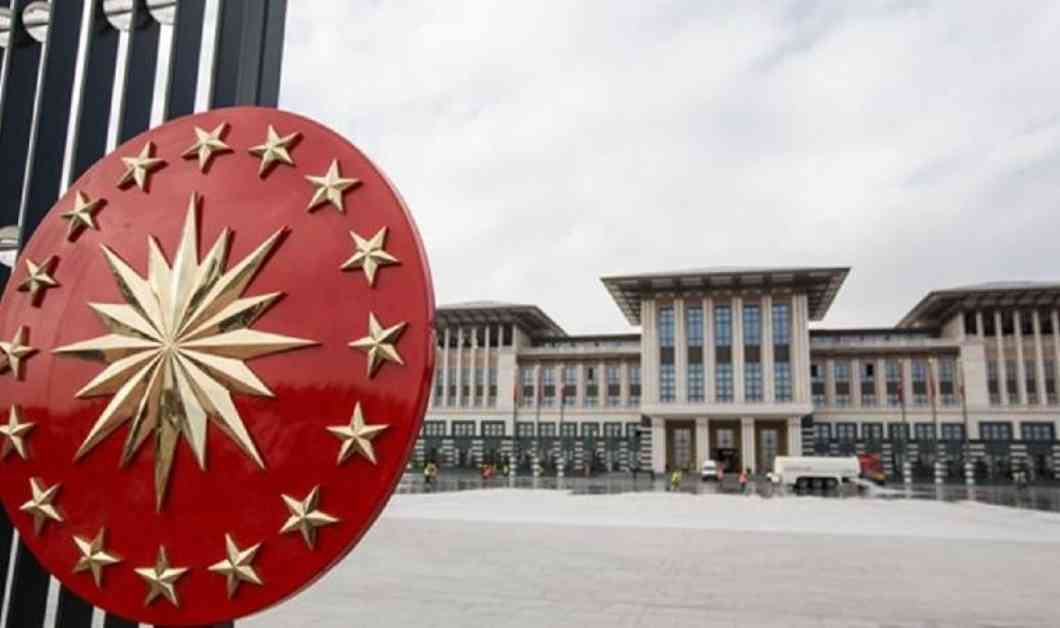TMSF and DDK Act Empowers: Can Mayors Be Removed from Office?
On a decisive Thursday, January 30th, a bill that bolstered the powers of the State Audit Board (DDK) and the Savings Deposit Insurance Fund (TMSF) was approved in the General Assembly of the Turkish Grand National Assembly. The enactment came into force as it was published in the Official Gazette on the same night. This legislative package embedded a novel provision granting the authority to the DDK, affiliated with the Presidency, to suspend public officials at all levels from their duties. The specific regulations in the law are as follows: “The relevant Board member or auditor can propose to the competent authorities to apply the suspension measure to all public officials at all levels and ranks regarding behaviors that impede or obstruct the audits, behaviors that will increase public losses if they remain in office, behaviors that obscure the evidence of the crime, or behaviors that are deemed detrimental to the performance of public service. The reasoned writing regarding the suspension measure shall be notified to the authorized officer, the President of the Board, and other relevant individuals.”
### “A Takeover Operation of the Entire Public and Private Sectors”
Opposition voices, such as CHP Istanbul Deputy Erdoğan Toprak, articulated concerns over the extraordinary powers granted to the State Audit Board and the TMSF through the omnibus bill passed in the Turkish Parliament. According to Toprak, the exceptional powers bestowed upon the TMSF and the State Audit Board signify a takeover operation of the entire public and private sectors. He emphasized that these two institutions, with the authority to dismiss public officials in public institutions, municipalities, and NGOs, as well as seize assets and appoint trustees in private companies, are transforming into new weapons for the government. The narrative of baseless accusations, evidence-free allegations, detentions, arrests, and politically motivated investigations orchestrated through the judiciary reflect a design to shape politics that may not have met the government’s expectations, leading to the expansion of plans through extraordinary powers granted to DDK and TMSF officials.
### DDK Regulation Post-Presidential System Transition
Following the transition to the Presidential system, changes were made to Article 108 of the Constitution, linking the State Audit Board (DDK) to the Presidency and prescribing the appointment of the president and members by the President. Consequently, on July 15, 2018, the 5th Presidential Decree Law regulating the duties and powers of the DDK was issued. This decree granted the Board the authority to suspend public officials at all ranks and levels. However, the Constitutional Court annulled some provisions of the decree law, including the suspension authority. The Constitutional Court reasoned that these regulations were not provided for in the Constitution.
The Justice and Development Party (AKP) included the DDK regulation in the omnibus bill presented to the Turkish Grand National Assembly on January 10th. The rationale presented in the AKP’s draft law highlighted the objective of aligning the regulation with the Constitutional Court’s annulment reasoning, aiming to regulate the suspension measure for civil servants and other public officials.
### Does It Include Mayors?
Legal expert Ersan Şen delved into this issue in his article on January 31st. Şen drew attention to the provision in the passed regulation that states the suspension notification will be sent to the authorized officer, the board president, or other relevant parties. Consequently, Şen concluded that the scope of the article may cover individuals in office through appointment but may not be applicable to those in office through election. However, Şen cautioned that the already extensive powers of the DDK could potentially create legal security issues and pave the way for arbitrary practices.
On the other hand, CHP Group Deputy Chairman Gökhan Günaydın suggested that there may be different legal perspectives on whether the provision includes mayors. Günaydın pointed out that the phrase “deemed detrimental to the performance of public service” might encompass mayors as well.
### Opposition’s Reaction
Opposition parties, particularly the CHP, have raised concerns that the State Audit Board (DDK) will have the authority to suspend “public officials” at all levels and ranks, potentially leading to arbitrary practices. They argue that although mayors are elected officials, they are also considered “public officials,” thus allowing the DDK to utilize its suspension power instead of the judiciary, leading to arbitrary suspensions.
Speaking to BBC Turkish, CHP’s Gökhan Günaydın reminded that the Ministry of Interior already has the authority to appoint a trustee or suspend mayors. Günaydın emphasized that the Ministry could exercise this authority under the condition of initiating an investigation or prosecution, highlighting that the DDK’s new power opens the door for the suspension of public officials without the involvement of the judiciary.
In conclusion, the recent legislative changes empowering the State Audit Board and the Savings Deposit Insurance Fund have sparked debates and concerns regarding the potential implications on the public and private sectors. The intersection of legal frameworks, political dynamics, and administrative practices underlines the need for a balanced and transparent application of these new authorities to ensure accountability and prevent arbitrary actions.













